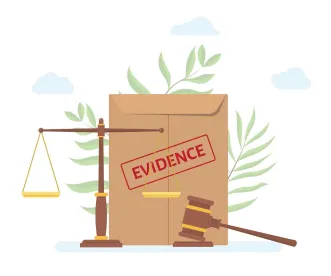Finding the university was on notice and had an obligation to preserve interview notes related to a climate and culture review because it knew or reasonably should have known to anticipate litigation, the U.S. District Court for the District of Idaho granted a motion for sanctions for the spoliation of evidence against the University of Idaho (UI) College of Law. Sanders v. The University of Idaho, College of Law, et al., No. 3:19-cv-00225-BLW (Oct. 7, 2022).
The court’s opinion is worth a close reading on the document retention obligations of colleges and universities, especially when conducting climate and culture reviews.
Background
UI received multiple complaints about the climate, culture, and work environment at UI’s College of Law in or around winter 2018. These complaints included overarching concerns about gender and sex discrimination under UI leadership.
In response to the complaints, the provost ordered a climate and culture review be conducted at the College of Law. A former UI human resources coordinator interviewed 32 College of Law faculty and staff members and took notes during these interviews. Some of the interviewees discussed concerns of potential racial bias and gender bias within the College of Law.
After the completion of the interviews, the human resources coordinator finalized the College of Law Climate & Culture Review (CCR) on April 17, 2018. The human resources coordinator then turned the notes taken during the interviews over to UI’s human resources director, and the notes were shredded approximately one week after finalization and distribution of the CCR.
Obligation to Preserve Notes
At issue in the spoliation motion were the notes taken by the human resources coordinator during the 32 interviews upon which the CCR was based.
The court focused on the following to ultimately grant the motion for sanctions upon a finding of spoliation of evidence:
-
The University had an obligation to preserve the climate review interview notes
-
The court found UI knew or reasonably should have known to anticipate litigation and, therefore, had an obligation to preserve the interview notes. The language of the CCR provided notice to UI that litigation should reasonably be anticipated due to allegations of gender and race discrimination and because the CCR stated a referral to UI’s Office of Civil Rights & Investigations or another appropriate department may be necessary. The court also noted there were attorney-client privileged communications between defendants and counsel relevant to the case during April 2018.
-
-
The University was on notice of the potential relevance of the evidence
-
The court found UI was on notice that the information in the CCR was based on interviews, which gave notice that any interview notes would be relevant to the concerns raised in the CCR.
-
-
The destroyed interview notes are relevant to the litigation
-
The court found that although the CCR summarized the contents of the interview notes, it did not provide the full contents of those notes and it did not provide details such as the race and gender of the interviewees. The court further stated the interview notes were presumably relevant to the plaintiff’s case and presumably adverse to the defendants.
-
Ultimately, the court found that sanctions were appropriate in this case given the circumstances and a finding that the destruction of the interview notes was deemed willful.
The court granted a permissive adverse inference instruction, which permits a jury to presume the lost evidence is relevant and favorable to the requesting or other party.
Takeaways
In a footnote, the court stated, “[T]he destruction of the notes was pursuant to a UI Human Resources standard operating procedure followed with other culture and climate reviews.” Accordingly, higher education institutions should take the opportunity to review standard operating procedures and record retention policies to ensure necessary preservation when litigation is reasonably anticipated.





 />i
/>i

